Matter and Its Interactions
-
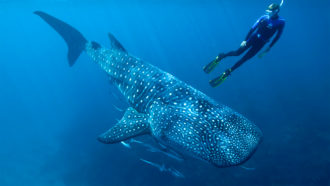 Animals
AnimalsTraces from nuclear-weapons tests offer clues to whale sharks’ ages
Traces left by nuclear-bomb testing in the 1950s and ‘60s can help researchers learn how old a whale shark is.
-
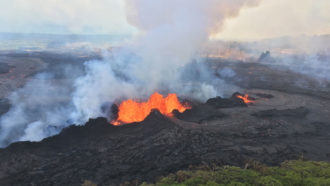 Earth
EarthDid rain put the Kilauea volcano’s lava-making into overdrive?
Scientists share strongly conflicting opinions about why Hawaii’s Kilauea volcano spewed an overabundance of lava in 2018.
By Megan Sever -
 Physics
PhysicsScience offers recipes for homemade coronavirus masks
New studies provide data on what types of mask materials protect best against the virus that causes COVID-19. They also point to the value of a really snug fit.
-
 Tech
TechCOVID-19 victims could breathe easier with these innovations
Feared equipment shortages due to the COVID-19 pandemic have prompted research teams to develop novel technologies to help oxygen-starved lungs.
-
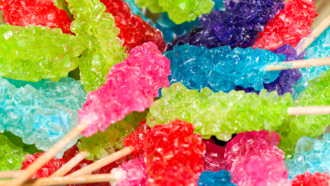 Chemistry
ChemistryRock Candy Science 2: No such thing as too much sugar
Making rock candy at home takes a lot more sugar than you might think. Why? This experiment will show you why.
-
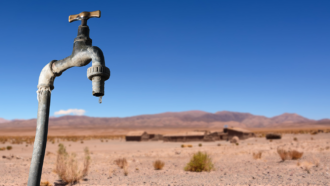 Tech
TechHere’s one way to harvest water right out of the air
Need water but you have no access to rain, lakes or groundwater? Materials known as metal-organic frameworks could be used to slurp that water from the air, new data show.
By Sid Perkins -
 Chemistry
ChemistryBatteries should not burst into flames
Because lithium-ion batteries power modern life, they need to store a lot of energy. Now scientists are focusing on making them safer.
-
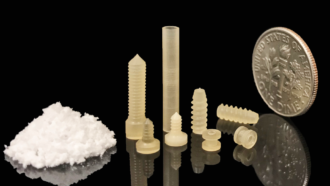 Materials Science
Materials ScienceSilk can be molded into strong medical implants
Freeze-dried and powdered silk has a long shelf life. It also is cheap to ship and can be molded into sturdy medical implants.
By Sid Perkins -
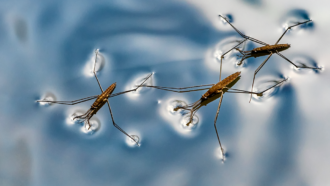 Physics
PhysicsTry This: Walking on water with science
Water striders walk on water. How do they do it? They spread out. This experiment will show you how it works.
-
 Chemistry
ChemistryConverting trash to valuable graphene in a flash
Flash heating of carbon-rich wastes creates graphene, which has many commercial uses.
-
 Space
SpaceBlack hole mega-burp was truly explosive
Long, long ago, in a galaxy far, far away, a black hole blasted out 100 billion times as much energy as our sun ever will. One word for that: Wow!
-
 Chemistry
ChemistryExplainer: What the pH scale tells us
The pH scale tells us how basic or acidic something is. Pure water sits in the middle of the scale, at a pH of seven.
By Lida Tunesi